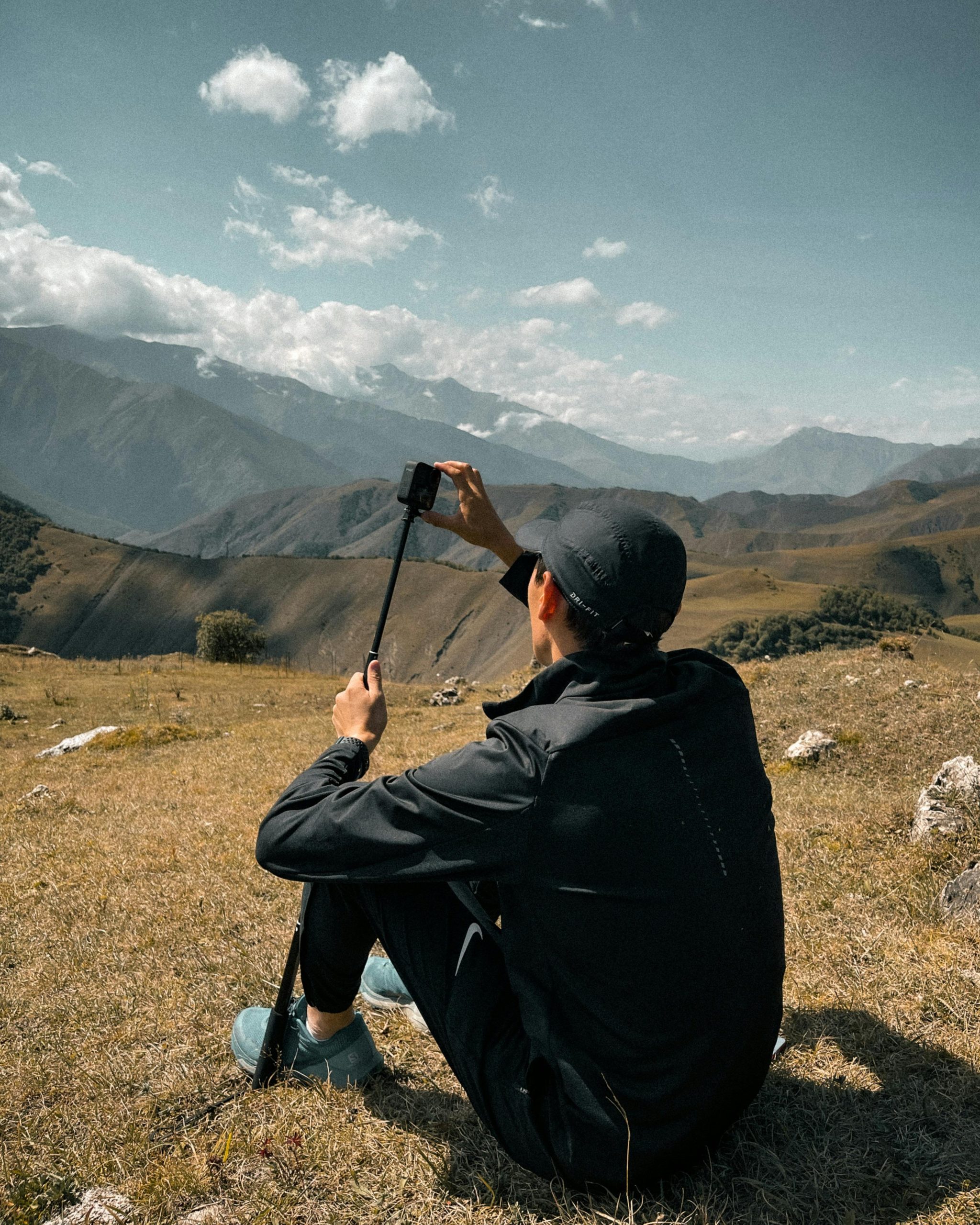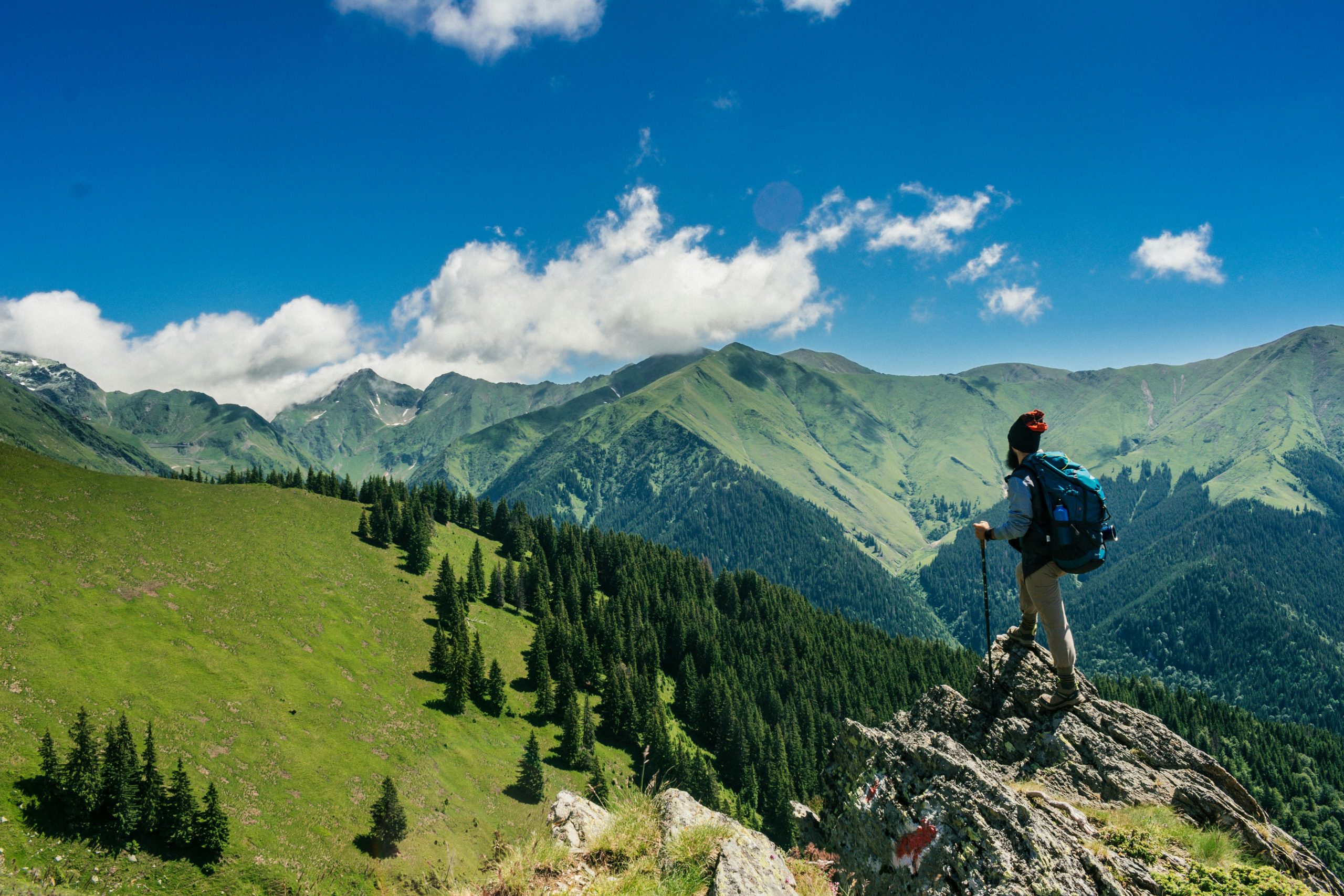The seven travel trends that will shape 2025
Have you considered your travel plans for the coming year? Travel companies around the world, from Booking.com to Airbnb, have.
These predictions are based on survey data, bookings and user behaviour. They serve as an annual showcase of new ideas for the industry. From identifying future hotspots to determining how and why we’ll explore the world, they provide a glimpse into the future.
Jenny Southan is the CEO of Globetrender, the world’s top travel trend forecasting agency. She explains that people are attracted to trends because they provide structure and understanding in a world that has become increasingly complex and fast-paced. When it comes to travelling, trends offer clarity and a map for engaging with the world.
Jasmine Bina is a cultural futurist, CEO of Concept Bureau, and an expert in consumer behaviour. She believes that travel trends are a sign of our deepest desires. She says that travel trends can reveal what people want when they suspend the normal rules of life. “Right away, what people really want is to be transformed.”
The travel industry is largely back to its pre-pandemic level. Still, economic uncertainty, ongoing wars in Ukraine and the Middle East, and the new US president make 2025 seem anything but predictable.
Jasmine Bina: Travel trends can reveal what people want when they suspend the normal rules of life.
Bina says, “You could say we’re looking for new anchors.” Travel trends such as stargazing and holiday romance, nostalgia, sleep tourism, digital detoxification, etc., show that people want to reconnect with something greater than themselves.
Southan agrees. She says that trends create a shared story—a feeling of collective discovery where we all participate in a global conversation about what is important. Trends provide an anchor that helps us better understand our place in the global landscape of travel.
Some of the leading travel brands in the world have predicted the top travel trends for 2025.
1. Noctourism
Nocturism – nocturnal + Tourism – includes nighttime travel experiences such as late-opening museums, bioluminescent beaches and northern lights viewing. In 2025, solar activity will be at its peak for decades, causing more charged particles than usual to interact with Earth’s atmosphere and create dramatic aurora viewing. The award-winning UK Travel firm Trailfinders recommends Finland’s Lapland, Norway’s Lofoten Islands and Svalbard as the best places to view them. Noctotourism fits in well with what has always been an important tenet of the travel industry, which is to foster a connection with the rest of the world.
2. Calming
Calmcations, holidays solely focused on creating tranquillity, will continue to be popular in 2025. The World Health Organisation has ranked noise pollution, especially from traffic, as the second leading cause of illness in Western Europe.
Havila Voyages offers “quiet retreats” on the Norwegian coast, which provide an opportunity to escape the noise of daily life. The resorts feature sound monitoring stations and a live forecast, and the decibel output is compared against that of other cities, such as New York, Paris, and London. Unplugged, a tech-free cabins company in Europe and the UK with the mission to “help the always-on switch off”, is also available. The brand-new retreat Majamaja on the Helsinki archipelago consists of a series of off-grid architect-designed cabins. All of these cabins are a clear sign that escaping from technology is part of the current escapism in travel.
3. Travel meets AI
Amadeus, a travel technology company, found that nearly 50% of its customers plan to prioritize generative AI by 2025. However, the survey found that many travel companies are not sure how to use the technology. They could be inspired by flight-free holiday company Byway, which created its own proprietary AI engine to simplify timetables and multi-country travel and remove complexity.
Tripadvisor is one company that uses generative AI to create itineraries. Airports are also using this technology to sort luggage more efficiently. In Hyatt Hotels, AI-powered beds can monitor blood pressure, heart rate, and movement to provide more comfort.
It’s not just positive news for technology. According to ABTA, the association of travel agents, tour operators and travel agents, Gen Z travellers are now almost as likely to browse the internet to get ideas for a trip as they are to flip through a brochure. This suggests that the trend toward tech isn’t universal.
4. Return of the Holiday Romance
Digital burnout has increased in tandem with the growth of digitization, especially when it comes to relationships. A 2024 Forbes Health study found that 79% of Gen Z are exhausted by online dating. How can this problem be solved? A report on travel trends from Globetrender & Amadeus contains a section about meeting people in person, which is one of the five predictions for this year.
There are more solo and group travel options than ever before. G Adventures and Flash Pack offer a variety of options for social adventure seekers.
5. Off-the-beaten-track goes mainstream
Off-the-beaten-track destinations are on the increase after significant overtourism problems in 2024. Byway’s travel trends for 2025 state that “people are looking to travel to places where they feel welcomed.” Byway cites the trend of “destination dupes,” which are holiday destinations similar in style to popular hotspots. For example, travellers might swap Cornwall for Norfolk.
Other destinations that are on the rise this year are off the beaten track. Uzbekistan is one of the top destinations for Trailfinders, while luxury tour operator Scott Dunn recommends East Africa’s Islands. This is due to new hotels opening in Zanzibar, Madagascar and an exciting new luxury yacht experience on the Aldabra Islands.
Milton Keynes, East Sussex, and other hot destinations are among the 20 most popular destinations on Airbnb for 2025. The list was compiled using data from the site, including trending searches and cities listed as a wishlist. The list also includes Rome and Milan, cities that will suffer from overtourism by 2024.
6. Coolcations, off-season safaris and colocations
The question for those who are used to vacationing in Southern Europe has changed from “where is hot?” The question has changed from “where’s hot?” to “where isn’t?” Climate change has a growing influence on travel destinations as temperatures continue to rise in the Mediterranean, a traditional hotspot for summer holidays. Scott Dunn has seen a 26% rise in bookings for Finland and Norway by 2024. He expects more tourists to head to northern Europe, where temperatures in summer are around 20 degrees.
The seasonal change affects not only beachgoers but also those who travel to see wildlife. Scott Dunn has moved the peak safari travel season from December to February due to changing climate patterns and affordability. Climate change is real, and both the industry and travellers are catching on.
7. Nostalgia travel
Will the ’90s icons Oasis and Eminem disrupt the travel industry 2025 by following Taylor Swift’s example? In December 2024, the pop star’s Eras Tour concluded. She is credited for boosting tourism and travel around the globe. Music tourism is on the rise, but Eminem’s and Oasis’ revival tours speak to another trend: nostalgia tourism.
Globetrender describes the trend as “New Heydays” and says that the holidays millennials love as children are getting a new look as they enter middle age. The report expects to grow the number of adult summer camps, Eurocamps (camping holidays in continental Europe), and retro pop-ups like the Polly Pocket of 2024. This could be an indication that we are looking for a break from the uncertainty of today’s world and want to retreat to the comforts of our childhood.








Post Comment